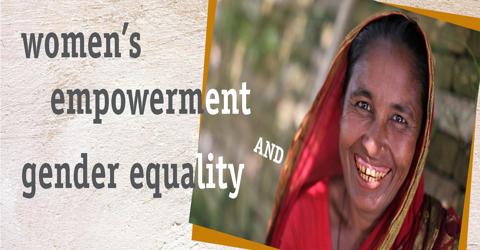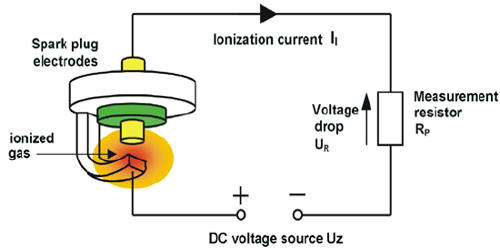Bangladesh is development country in our world. The importance about the role of women in the development of the society understand. All people Struggle for modernity, tradition, men-women equality, social dignity, earn, health, education and cloths, security and for multilateral pressure the position of women in the family is very complex. Here men and women participate in social development is equal.
Introduction:
This report was produced as part of the Strategic Impact Inquiry on Women’s Empowerment Undertaken by LGED project. LGED evolves in-depth examination of four field projects as well as an internal assessment of organizational changes all with respect to their impacts on women’s empowerment. The LGED is itself part of a global strategic impact inquiry on women’s empowerment undertaken by various project which, in its original design involved similar field inquiries in India, Ecuador and Yemen as well as Bangladesh.
This first section of the report is intended to provide those not familiar with the with a brief introduction to the process as it is relevant to the current study of LGED Rural Maintenance Program. Those seeking a more detailed understanding of the context of this study may consult various documents. Particularly useful in the preparation of this overview. Bangladesh is considered as one of the poorest countries of the world. Women empowerment challenges most important topic for Bangladesh government. LGED project are try to empowerment to the women.
Statement of the Study:
Bangladesh is a developing country of the third world. Half of the total population is women whose socio-economic condition is very low. Struggle for modernity, tradition, men-women equality, social dignity, security and for multilateral pressure the position of women in the family is very complex. Here men and women do not participate in social development is not equal. Many indoor and out door activities of women are not treated as work. The devaluation of women labor in labor market also hinders women right. But in market economy women of Bangladesh are always facing new challenges. Though women work in educational institution, medical, factories, police, even in the uneven areas, women are neglected, tortured and persecuted. In the society of gender disparity it is difficult for women to stay parallel and enjoy the right of equal participant. Various LGED project try to change lifestyle of poor women. All these should be discussed here.
Rationale:
For the balance development of a country man and women both can play vital role. Half of the total population is women. No socio-economic, political and cultural development is possible without the empowerment of women. So, identifying the hindrance of women empowerment in my research work to take steps to solve the problems is the main purpose of my research work.
Objectives of the study:
- To understand the importance about the role of women in the development of the society
- What are the obstacles and the causes of obstacles
- To know about the hindrance women face in the field of work
- To know social attitude towards.
Scope of Term paper:
The dignity of women, the role of women in the field of socio-economic and political development and many other problems of women are discussed.
Research Methodology:
Primary data method is applied here.
Definition:
Empowerment of women: Empowerment of women is such a process which controlling women rights, challenges gender disparity in parental and social institutions.
Socio economic Condition: The socio-economic condition refers to the social dignity, educational qualifications, family marriage system, mother, social value, occupation salary, wealth etc.
Review of Literature:
Various LGED project evaluation on women empowerment. Rupban, Anjuara, Anoara, Aklima, Saleha, Nargis, Jahanara, Asea, Rahima, Khodeja, Tulsi, Moyna, Masura, Tahamina and many other women work in LGED project for women empowerment.
Social Dignity:
In our society women are not getting due respect. Most of the women in Bangladesh believe in erotic social value and superstition. In this condition women are always dependent on men. From the early childhood female child is neglected. The birth of male child is welcome on the other hand that of female child is considered as a curse. When the female child is growing up, she realize that she is born to serve the female, she is a curse for the society or family and the social environment enhances her idea and for this men use social superstition, religious sentiment, ignorance’s and weakness and helplessness of women.
Women have to lead lower life in the male dominated society. Another cause of it is that mantis the wage earners, so in social attitude the role of women is not considered important as men’s. In the case of lower social dignity of women. Borhan Uddin Zahangir and Zarina Rahman have mentioned two features. One is parental and another is social inequality. The first origin the familial sector and the 2nd one is the sub ordinate rich sector. And mutuality between these two sectors have made the women homesick.
There is another cause behind the less dignity of women in Bangladesh age. marriage system, relationship and mother. The right of women in the case of marriage is negative. The father becomes the decision maker and mother’s decision is always neglected. The registry, demand of bride, witness etc are compulsory. If the marriage is not registered, it is illegal. Since there are double rules in the society, the women can’t take action when they are divorced. The agreement in marriage in Islam is equal but in practical, It is not equal. The men have the right to divorce, keep four wives at a time. Here women are not safe they are inferior to men.
The Economic condition of women:
In our country the economic condition of women is not good. They don’t get power to decision making in family. The main aspect of women empowerment is the equal rights of women in the working field. From the ancient period women were engaged in household chores preparing field sowing seeds, weddings harvesting and many other activities. The picture of invisible contribution of women was shown in the moderate National income in 2008. According to this statistics, the production which is produced and used in house is it worth of 29 trillion dollar. Of them 10% – 38% production is produced in houses by women which does not need to pay. In 1990 it is stated in a statistics if the activities of women in the family are counted and added to the national income, the total income of the world increases form 20% to 30%. But these activities of women are not granted. Here the annual and daily activities of rural women granted by UNICEF in 1991 and Department Female affair in 1994 are shown below.
Years of Rural Women in Bangladesh
| Month | Activities |
| Baishakh (Apr 15-May 14)
| Bringing soil form pond, cultivating vegetables watering, weeding, making of mango pickle. |
| Jaistha (15 May – 14 June) | Making mango pickles, cultivation of curry |
| Ashair (June 15 -July 14)
| Fishing, knitting, produce fish, knitting katha and clothes, rope of jute etc. |
| Shrabon (1 5 July- August 1 4)
| Harvesting, cleaning, boiling rice, basking drying straw for cows and piling and making cold earth& other reproductive work |
| Vadro (August 15-Sep.l4)
| Cleaning wet place and mushroom of after flood, preparing hearth and box for paddy, products from jute. |
| Assin (Sep.l6-Oct. 15) and Kartik (Sep. 14-Dec.l4) | Going to father’s house, cultivating vegetables and pulse. |
| Agrohayon (Nov. 15-Dec.14) | Husking, collecting rice making fried rice
|
| Poush (Dec. 15- 14 January)
| Cakes of new rice and chira and muri
|
| Magh (15 January- 14 Feb.)
| Dat juice, gur making and making cakes |
| Falgun (Feb.l5-March 14) | Decoration of houses, making floor high and ariping, cultivating vegetables, uproot mastered etc. |
| Chaitra (March 15-14 Apr.)
| Cleaning houses and repairing, sowing Vegetables making fans of plum tree. |
| At dawn
| Getting up, washing hands and face, pray, feeding domestic animals, drawing goats out, sweeping yards, washing paltes and jars feeding husband and children, having breakfast, fetching water, cleaning. diving palace giving grass to cows. making, collecting feales. |
The labour of women is considered as a strong weapon to alleviate poverty in the whole world. At present a major part of total population is women who work outside the homes. According to the report by BBS (2007-08) the number of workingwomen is 39 million is 43.25% of the total labour. Now women labours are working in medical sciences, teacher, nurse, health, family planning, including, garments factory, tea factory, mine, manufacturing Intention Labour.
Organization works from 1951 to present time:
- Equal Wage Convention 1951
- Discriminatory Service convention 1959
- Social rules Convention 1962
- Investment rule Convention 1964
- Education leave Convention along with wage 1948
Human Society Development convention was taken such steps. Women are lagging behind in the field of govt. and non-govt. administrates duties. In our country appointment of women judge was unlawful and eradicating that problem women judge was appointed after 1975 and at present out of 60 judges’ two judges is woman in the Supreme Court of Bangladesh.
In BCS (Gen.) woman was appointed first in 11059 and in administration in 2000. And women polic super was appointed few years ago. Women have been recently appointed in Armed medical core. Even women lag behind in BCS.
Besides less wage want of service and security disparity of working hours, leave, etc. one the obstacles in the ways of women. Though the garments factories are fault on the basis on women labour it is found that 40% women work 12 hours daily on 30% women work 13 hours daily. Besides women workers suffer from insecurity of commission and way to garments, weekly leaves etc.
Area of professional working women
In the field of profession it is mentionable that the participation of women in the important sectors is few. Even there is no women in some sectors. On the other hand the number of women in the work which has no value, is satisfactory. It is found that in the Adam sumari of 11051, 75% women are engaged in household choruses. The position of men and women according to profession is shown below.
| Persons related to work (thousand) | |||
| Total | Male | Female | |
| 1 . Professions related to technical works | 1469 | 1129 | 240 |
| 2. Related to medical, dental & animal treatment | 249 | 227 | 21 |
| 3. Statistics and mathematicians | 1 | 1 | – |
| 4. Economists | 12 | 11 | 1 |
| 5. Administrators and other officials | 294 | 218 | 16 |
| 6. In transportation | 218 | 218 | – |
| 7. Related to household activities | 846 | 223 | 623 |
| 8. Writers & Reporters | 12 | 11 | 1 |
It is worth mentioning that the number of male workers is greater than female one’s on all spheres with some exceptions like household activities where 626,000 female workers out of 846000 lake part. Its main cause is that remuneration in household activities in less and these places have not yet been identified as work places.
Property and Women:
In our country women are generally poor. The causes of poor condition of women are the traditional heritance system and ownership of properties. In Muslim society a female child gets less share of her father’s property than a male child and in absence of the husband, the wife gets less them her children. This inheritance system recognized by the religion degrades the women in male dominated society.
Besides, the persons who hold more properties, have more power to take decision is any matter. In rural society the land lords hold the power society and only they take any decision. In Bangladesh the land and its management belong to the male, not to the female, which makes the men inheritors, Power is such a stuff which is always exercised on the weak. In a family the husband exercises his power on the wife and the children which is the main theme of the male dominated society.
Educational Status:
Education is the key element of development for both man and women. Education is one of the basic elements of man to develop personality, sense of responsibility, sustaining rights, civic sense and specially national progress. But in the field of education women of Bangladesh lag behind men. In the field of national educational the percentage of women education is rather frustrating, Compared to man. It is true that all the development programs in Bangladesh included women on priority basis and still they are being given priority but they are found half of the male in education even after liberation period. This disparity starts in the primary level and it increases in higher education. The admission ratio in different seven Universities was 77.20:22.80 including male and female students in 1999. In different program primary education was declared compulsory and in order to less the difference between male and female, female education was given more importance.
Despite this, it was seen in 2005 that of the total students, 56% were male and 44% were female. It is not worthy that at present 95% students who are eligible to go to schools are admitted in primary schools and on completion of primary education 38% drop out of it. Here is a data of drop out in primary level in percent.
Methodology:
Torture on Women in Bangladesh:
Men want to keep the women obedient to them by inflicting both mental and physical torture on them. For this reason the women have been confined in four walls. In our country their labour receive no wages and they can not decide on any matter Because of extreme father domination and religious superstitions, Bengali women of this sub continent are tortured in different ways. This tradition have been going on for thousands of years. In modern times the vastness and varieties of tortures on women are so great that it should be termed as “Crime against women” instead of calling it “Torture on women” or ” attack on women”.
Despite hard to harder laws or harsh warnings women of this country fall a victim to harassment and torture.
Physical torture, rape, ‘fotoabazi’, acid throwing and different types of sexual harassment and blackmailing have always kept the Bangla women worried and shrunk.
The vastness of tortures on women is far greater in rural areas then in towards and in root level women than in educated women. Many incidents do not come into light for the threat of political leaders or for the fear of family prestige. Although there are strict laws and warnings form this law makers of the government and there is no lack of good well to prevent tortures on women, day by day tortures on women have been increasing
According to a data from the Police Head Quarter the incidents of torture on women were 12,892. Up to 2005, in five years totally 45,443 tortures on women took place among which there were 14128 rape case, 649 acid throwing, 1293 seriously injured and 29036 casualties. It can be asserted that there are many instances of tortures on women which have not be included in the police diary.
Religious fanaticism and misinterpretation of religion have been used in this subcontinent for a long time to continue the women folk in four walls by the advisers (fotoabaz) of religion. These incidents being to much horrible, on 1 January, 2001 high court Division of the Supreme Court declared all types of fotoas illegal. Besides rape and fotoabazi, the women folk of this country are victim of various types of tortures like acid throwing and dowry, the criminals are finding out new ways and means and applying them in reality.
Suicide for being raped, fotoabazi and new device of tortures or women and black mailing have briefly been discussed here. It may be mentioned that these writings were published in “The Jonokantha” a for lingt magazine. Because of financial insolvency women feel insecured. Patriarchal social system do not encourage women empowerment . The suffering women bear all types of torture because of having no power.
Data Analysis & Interpretation:
Women of Bangladesh:
Women of our country could not advance as a result of supers titian and blindness to religion deeply rooted in the society. Women were kept at home building the shadowy wall in every sphere of life. Having same quality women are still lagging behind. Although the Queen rules over the king in reality, women have been made completely dependent on men. They have been only taught how to cook, wash dishes and do all the household chores. Religion has been used as a weapon to wash their brain. It is said that a will can deserve heaven under the feet of men. They will have to digest every thing inspite of all the illegal works done by husbands.
Some people have deviated from religion and explain religion from then own point of view. They push the women into inhuman suffering. Women are to bear the inhuman torture because of their narrow out took. Inspite of being 50% of the total population, only 7% – 8% can enjoy liberty, equity and justice in the male dominated society. There is no disparity between east and west in respect of women torture. In this respect all men are equal to torture the women.
Rights of women
In the constitution of the people’s republic of Bangladesh some fundamental rights for women are:
- Article 10. : Steps shall be taken to ensure participation of women in all spheres of national life.
- Article 28(2) : women shall have equal rights with men in all spheres of the state & of public life.
- Article 28(4): Nothing in this article shall prevent the state from making special provision in favour of women children or for the advancement of any backward section of citizens.
In a recent study it is found that 12% enjoy human rights fully, 8% enjoy minimum human rights, 7.8% can enjoy equal rights in human activities and 7.6% can enjoy open freedom.
What steps to be taken to ensure their human right?
- To take law full steps
- To expand Education
- To raise consciousness
- To achieve economic solvency
- To get equal phase in their father’s property.
From this study it is noticed that all women opine to take the shelter of law, correct the law, raise consciousness of their rights and responsibilities, provide more opportunities, continue campaign, ensure equal share of property, express rights of freedom, avoid fundamentalists and soon.
Findings:
Women and law of Bangladesh:
Some laws have been introduced to protect the women rights, injustice made to then and those are still in action. Those are dowry opposing act 11050 (Reach field in 11052). In this law punishment has been imposed directly or indirectly for receiving and giving dowry. Under this law one year jail may be offered on Tk. 5000 fine or both applicable.
For killing inhumanly death or life long joint is offered. Women and Children Oppression curbing act 2000 makes the base of protecting women rights. Under this law hijacking raping, killing after this law hijacking raping, killing after raping, raping by turn, in case of raping by police law has been make for offering death centaur. Under this law sexual harassment is a punishable offence
Acid crime act:
In this act, rowing of acid is considered to be on offense of being incapable of bail and non-compromising. Incase of death by acid throwing, the convicted person will be offered death sentence of life long jail with one lakh money as compensation. People have expressed different views for and against this law. An organization was formed to raise protest against all orts of disparity against women.
Women and Children oppression act 1995
In application of this law, time of investigation and judgment is determined. In case on belong of judgment and prolonging the verdict, investigating officer will be bitable for reflecting duties and responsibilities. As a result this act may lessen the prolonging settlement of the case.
According to women and children oppression act 1995 and 2000 the matter related to increase the duration of investigation of the verdict is under the judgment of direct tribunal. So the matter of increasing time is under the trial. In this case there is a great possibility to dissolve the process of trail very soon.
If the criminal is earning member, the compensation rule can be applicable: The traditional tendency to harass the oppose of litigation is the additional tendency of our society. Sometimes false litigation is file as a result of the feature created by guardian or the ruling class people.
Under this act Judiciary facilities are provided in a confined resume. In that case no person will remain present there except the concerned persons. If necessary the judge can conduct the judgement either in the court or outside the court. Under this act the victims are being greatly benefited.
According to women and children curbing act 2000 in case of attempt to death or rape by poisonous or burning elements or in both cases, it will be considered to be serious offense.
Women of Bangladesh and politics:
As human resource, stock reserve labour forces if women remain away’ from total development and political process, desired development is never possible. So, women are half of the total population^ they Should be involved in all state affairs to enhance the socio-economic development of the country. Women are the victims of disparity by any means relating education, health, employment opportunity, lawful right, humanistic treatment, citizenship right and so on. Poverty is one of the most important reasons for the women oppression. Recently United Nations Organization in a study women participation, in democratic process and empowerment, equality have been encouraged for fundamental issues.
Women representative rights is undeniable. Secondly poor presence or the women in political arena is identified for their backwardness. Actually if their participation is not proper, they are deprived of legal rights.
We describe in detail desks wards as what we Gird in proceeding to analysis the total situation of the research work.
Women and Administration:
Among the administrative cadres, BCS admin stands top considering aristocracy. They are the propelling power of stately affairs. Very few women affaires are at this cadre presently. Since 19105, no women were in secretary level in the serve centre of power – Secretariat. Recently women are getting promotion in different state organizations including ministry of women and child affairs. Important national organization, namely UGC, Election commission is devoid of women. There are only two women ambassador. There are two women justice in Supreme court High Division.
Steps in women empowerment :
Bangladesh government is taking different kinds of steps to empower the women. Such as, quota system, including women in local government by ratio system, scholarship system in education for women. In parliament 45 reserved seats are for women members, in primary sector 60% women are recruited as teacher.
In garment sector many women are working and being solvent. By micro-credit system many women are bringing economical solvency in their family. BRDB besides Grameen Bank, Proshika, Asha etc, non-government organizations are playing role in the development of women from rural area. In this way these institutions helps in women empowerment in Bangladesh.
Road Maintenance and Tree Plantations through LCS Women:
The Rural Maintenance Program (RMP) launched in 1983 by CARE is the pioneer project in Bangladesh which has challenged the traditional role of rural women by engaging them in road maintenance out side home. This program is designed to address some of the most important development challenges of Bangladesh – poverty alleviation, women’s empowerment and institutional capacity development of local government and ultimately, integration of women in transport sector. RMP, funded principally funded by CIDA, is a country program presently working in 4,152 unions of 61 districts serving 41,520 women annually.
In each union (the lowest administrative unit of local government) 10 destitute women are employed in a group for a four years to maintain and keep passable thought the year about 20 km of rural earthen roads. The wage per day is Tk 43 of which Tk 10 is saved in their escrow (forced savings) account. Escrow savings are used as start-up capital for income generating activities, which they have to undertake at the end of business management training, six months before their graduation from the project. Graduates are are no longer destitute. Other destitutes in the union should get an opportunity to come out from that condition. Initially LGED was involved in supervising and monitoring the RMP program. RMP activities are now supervised by jointly by union councils and CARE. LGED has followed the model for employing destitute women in maintaining rural roads and growth center connecting roads, through various projects and as part of its regular program. These are the better of those roads maintained through RMP.
In RDP-21, women from areas near roads are recruited for two years as members of Labor Contracting Societies (LCS) of 10, so they can take care of plantations from morning to evening and maintain road sides including shoulder and slope and clean bushes. Each woman has to take care of 0.5 km of road. The wage structure is about the same as for RMP. After two years and IGA training, these women receive their escrow money. Unlike RMP, these women can be recruited by LGED for other similar programs. LGED community organizers are responsible for recruitment and monitoring activities. A total of 1,676 LCS women have been appointed in RDP-21 for road maintenance and tree plantation on 838 km roads; all received training on road and tree plantation maintenance. Every LCS women has opened a bank account and receives a wage and has started mandatory savings.
This component has created an opportunity for destitute rural women to earn money. After the two years’ services, the women are provided with two days training on “awareness raising and IGA” on health, sanitation, family planning. A training manual for the trainers of LCS women was prepared, finalized and appro
Case Study LCS Woman for RM and TP
Julekha Begum is from Panchagarh and is 28 years old. She has the education level of grade five. Julekha got married at the age of 15. Her son was born after one year of her marriage. After five years she gave birth to one daughter but her husband left her before the birth of her daughter. At that time she had to move to her father’s house. Now she is living with her 12 years old son Bashir and 7 years old daughter Beena in her father’s house. She became destitute as her husband left her with children. She survived by working in neighbors’/ villagers’ houses as a maid. Julekha joined RDP-21 late 2000. She was selected as an LCS member of RDP-21 through the lottery system. She maintains the roadside and looks after the plantation provided by the project. She received one day’s training after joining the project. According to her, two years is very short to make the plants/trees sustainable. She mentioned that the project should provide the supporting bamboos or sticks for the plants. In rainy seasons, she faces a problem in collecting soil to maintain the road.
After joining RDP-21 she has become independent with reasonable earnings. After IGA training she rented some land with the money she saved when she was working in the project. She spent Tk. 2,500 to rent this piece of land and she invested Tk. 1,000 in a money lending business from her own savings. Now Julekha earns Tk. 80 and Tk. 75 per month from the land and credit from the lent money.
Julekha believes that RDP-21 should employ women for two more years, as the additional year would help them to become totally independent. At present, at the end of the second year they start to become independent. So this support should continue for two more years. As of now, some of the women cannot stand on their own foot after their termination from the job.
Julekha is no more destitute and has honor in the society. She has decision making power as well as some money. She does not have to depend on anybody any more. She earned the skill to accommodate and establish her own right in the society.
Before joining RDP-21 Julekha did not have any savings. Now she has invested some money on land and credit business and earning Tk 155 per month. She is again working in peoples’ house and getting food from there.
Julekha is planning to buy a cow with the RDP-21 forced-saved money, whish she kept in the bank. She is also thinking of buying land. She wants to give a good life to her children. Her economic condition was better when she was working in RDP-21. After the termination her condition has deteriorated a
Monitoring and Evaluation:
LGED will set up an internal monitoring system to report quarterly involving the Upazila Engineer at the Upazila level and the Executive Engineer at the district level. The District Sociologists will primarily be responsible for collection of monitoring data on land acquisition and implementation of resettlement plans, indigenous peoples plans (if any) and gender actions in the process. The project Management Support Consultant team will include a senior, experienced Social Scientist who will be prepare six-monthly reports on monitoring of land acquisition and implementation of resettlement plans, indigenous peoples plans (if any) and gender actions in the process.
The LGED PMU will be responsible for monitoring, reporting and evaluation, including the design of the M&E system. Independent reviews of the LGED land acquisition process will be carried out at regular intervals through the RTIP-II integrated performance audit procedure on a 15% sample of roads under a construction phase. The timing of these independent audits, and the tasks of the auditor for each audit, will be done annually or as determined from time-to-time based on the status of implementation of the Project Work Plan. In respect of land acquisition, the audits will at different stages review the LGED land acquisition process and its monitoring results, and the implementation of the RAPs. This will provide timely feedback on the effectiveness of the planning and implementation process for land acquisition and resettlement of affected persons including indigenous peoples, and on gain. She wishes to join another it’s monitoring. It will generate prompt feedback on problems and issues to be addressed by the Project. An independent impact evaluation will be carried out on 15% sample roads under each construction phase to evaluate the adequacy of the mitigation policies, the socio-economic impact of the Project on the persons affected, and the achievement of the social development goals as well as lessons for future projects. This independent evaluation will require inputs at project-start (to collect baseline data), during implementation (to expand the baseline data base and collect interim evaluation data) and at project-end (for evaluation). LGED will contract with local consultants to carry out the independent impact evaluation. Annex A5 presents the outline terms of reference for the independent evaluation. LGED has prepared the TOR for Independent Performance Auditing (IPA) and shared with the Bank before appraisal. All IPA reports including supervision of RP/IPP implementation will be shared with the Bank.
WHAT THE RMP WOMEN SAY:
In interviews and focus groups, RMP graduates are almost without exception positive about their experience with RMP. When asked about how their lives have changed the first topic is almost invariably income, assets and livelihood. Many remarked that their families now have three meals a day, they have better clothes and can afford to send their children to school. Most invested income and savings in building or renovating their homes. Many mentioned installing sanitary latrines, buying land and investing in various income generating activities – money lending and livestock were among the most common. Many also mentioned leasing land for agricultural purposes Although there were a couple of exceptions, most were also very clear about their work with RMP having led to enhanced social standing in the community. This is a particularly significant effect for these women as, in the Bangladeshi village context it runs against cultural and religious norms about the social respectability of widowed or divorced women. The RMP women frequently mentioned that they are now invited to weddings and other social events (to which they would never have been invited before). People come to them for advice, for small loans and for assistance in dealing with family and community issues. It is striking the number of women who attributed the change in social status directly to their changed economic position. However several also talked about enhanced social skills – their ability now to talk with anyone and especially with social elites. The interviews also suggest that specific skills they had acquired (financial management and income generation particularly), their familiarity with Union Parishad officials, other service providers, and life outside the local village more generally had given many of them status as a valued resource in the local community.
When asked about the training they had received, they would name the training topics but it wasn’t clear whether they would be able to recall specific details of the trainings. They tended to be most enthusiastic about the training related to managing finances and income generating activities and after that about health and nutrition training. Several mentioned changes in hygiene habits (as a result of health and nutrition training) which had reduced disease, particularly incidence of diarrhea in the family.
The researchers also asked the women about two subjects which were identified by research teams as key empowerment issues for women in Bangladesh – mobility and control over decision-making. It’s not clear the degree to which the women themselves saw these as significant impacts but most reported both increased mobility and control over decision making in their homes and family. There were, again here, notable exceptions, particularly women who, once they had returned to their homes, submitted to almost total control by husbands or adult sons. Even the women who did report increased control over personal mobility and decision-making often framed it in terms which suggested that cultural and social norms still placed ultimate control in the hands of male household members: e.g. “she takes all decisions in the family; but in case of any difference of opinion her father-in-law’s decision is accepted.”
Women were also asked about participation in community organizations and community decision-making. With regard to membership in NGOs and relationships with Union Parishad officials there seemed to be considerable variation union by union suggesting that this had as much to do with NGOs which are operating in the area and attitudes of specific UP officials as to do with any specific program effects. Women were also asked about participation in salish – informal community arbitration generally presided over by local elites. Some women reported being called to testify cases and one or two reported voluntarily attending and expressing strong opinions; but there is no indication of significant structural change with respect to this particular institution. Many women did report being consulted or actively intervening (informally outside of salish) in specific family or community situations in which they had some connection to the involved parties.
Finally, it should be noted that while, almost without exception, the women described a great sense of camaraderie while they were working together as a team and continuing positive feelings for one another, none met together as a group after leaving RMP. There were-15instances.
Research findings:
We describe in detail downwards on what we find in preceding to analysis the total situation of the research work.
(1) Women representation is very limited in different level of government especially in ministries.
(2) Regularly women in mass representative organizations is scarcely as candidates.
(3) Women does not exercise the power of decision making in every sphere of politics and bureaucracy.
(4) Different wage rate for women.
(5) We keep a great role in garments sector as wager
(6) They are playing important roles in education
(7) Their participation in politics are increasing
(8) The women are being solvent by the opportunity of micro credit.
Recommendations:
- Wage increase.
- Life time of project is increase.
- Holydays increase.
- Manpower increase.
- Women should participate more and more in politic to establish their rights in politics.
- The working field of women should be extended to increase the economic power of women.
- Social attitude towards men and women should be changed. Through social movement. Along with political parties women organizations should come forward along for this
- The govt. should be cordial and active to implement the effective steps in the rules and regulation committee.
- Women should be appointed in the higher administration with post of cabinet secretary and in the ministry and department.
- To eradicate the disparity of men- women wage reformation in wage distribution is necessary.
- Women workers can’t protest against the injustice of the higher authority for lack of the help of law.
- Political and lawful rights of women should be included in the education syllabus.
- All the international agreements against women persecution including extinction of all discriminatory activities against women should be implemented fully or to take steps to implement.
- Reserve seat for women should be maintained for UP level to all sectors.
- They should not be nominated for reserve seat, rather should be elected directly.
Summary and Conclusion:
The overall situation of women empowerment in Bangladesh is not in satisfactory level. Still now most of the women are engaging in household activities. Their contribution in notional income is nominal. In workplace women are not getting proper wages. In most families they can’t take part in decision making. But very recently the picture has been changing. Our prime minister and the leader of the opposition party and some important ministers of our country are women. A large number of women are working in garments industry. They are taking part in earning foreign currency. Gradually in the sector of industry- public, private and education, Banking and insurance, Tele-communication. Army, Police, NGO’s even in politics women are playing very important role. Present government is giving importance in women empowerment. So for the welfare of our nation we should change our back dated mentality. From family to national level every where women should get their proper rights and respects. Government should emphases on women empowerment. No nation can prosper without the contribution of women. So for national development and prosperity we all should ensure the empowerment of women.
















